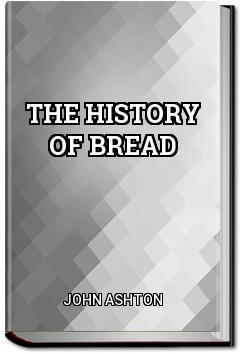UNLIMITED Audiobooks and eBooks
Over 40,000 books & works on all major devices
Get ALL YOU CAN for FREE for 30 days!
The History of Bread
John Ashton
How does All You Can Books work?
All You Can Books gives you UNLIMITED access to over 40,000 Audiobooks, eBooks, and Foreign Language courses. Download as many audiobooks, ebooks, language audio courses, and language e-workbooks as you want during the FREE trial and it's all yours to keep even if you cancel during the FREE trial. The service works on any major device including computers, smartphones, music players, e-readers, and tablets. You can try the service for FREE for 30 days then it's just $19.99 per month after that. So for the price everyone else charges for just 1 book, we offer you UNLIMITED audio books, e-books and language courses to download and enjoy as you please. No restrictions.
A Palestine Hand-mill.
And Dr. Clarke, in his Travels,6 says, that at Nazareth: ‘Scarcely had we reached the apartment prepared for our reception, when, looking into the 37courtyard belonging to the house, we beheld two women grinding at the mill in a manner most forcibly illustrating the saying of our Saviour. They were preparing flour to make our bread, as it is always customary in the country when strangers arrive. The two women, seated upon the ground opposite to each other, held between them two round, flat stones, such as are seen in Lapland, and such as in Scotland are called querns. In the centre of the upper stone was a cavity for pouring in the corn, and by the side of this an upright wooden handle for moving the stone. As the operation began, one of the women with her right hand pushed this handle to the woman opposite, who again sent it to her companion, thus communicating a rotary and very rap. . . Read More
Try now for FREE!

"Love your service - thanks so much for what you do!"
- Customer Cathryn Mazer
"I did not realize that you would have so many audio books I would enjoy"
- Customer Sharon Morrison
"For all my fellow Audio Book & E-Book regulars:
This is about as close to nirvana as I have found!"
- Twitter post from @bobbyekat



Community Reviews
Its info on European bread history is mostly good but dry (if you get over them calling everything corn and insisting that Europe invented bread.) But it reeks of thinking how much better England and Europeans are to the rest of the world.
so when i bought this book, i had no idea it was written before 1923, & so was… very unhappy by the amount of jargon & such present. that makes more sense in hindsight.
it was a very interesting look at the history of bread—though i would like to read a more modern take on it, as a lot of this book w